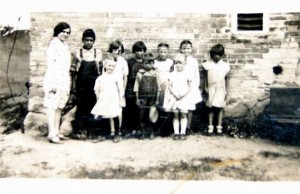A Pedagogy of Compassion
 Before considering what needs to be included in a pedagogy of compassion, let me detail what is not part of such a pedagogy: lowered standards, giving some students an unfair advantage over others, and treating the student as customer. Nor does it presuppose that we consider our students as anything other than responsible adults.
Before considering what needs to be included in a pedagogy of compassion, let me detail what is not part of such a pedagogy: lowered standards, giving some students an unfair advantage over others, and treating the student as customer. Nor does it presuppose that we consider our students as anything other than responsible adults.
My friend and colleague Clark Iverson has written that “compassion is a crucial element of a transactional production of meaning in classroom discourse, as opposed to the unidirectional pouring of knowledge into the students’ empty cups.” A pedagogy of compassion is meant to facilitate learning and to enhance discourse.
Our students are responsible adults who have adult responsibilities. They are also adults in transition who do not always know the unwritten rules that guide the academic classroom. Even as responsible adults, they are bound to make mistakes or bad decisions. Others lack skills they “should have learned” before entering our classrooms. A pedagogy of compassion encourages us to recognize that serving as mentors is an important role we play as faculty.
Last year, I was assigned to be a mentor to a new faculty member who was very talented and experienced. Yet, as a college, we recognized that she would need assistance in navigating the new environment in which she found herself. If an experienced faculty member can benefit from a mentor, mentoring is even more needed by our students.
Sometimes, while juggling complex lives, students make poor choices. Whenever possible, I try to turn poor choices into educational experiences. I will meet with the student, discuss strategies for making better decisions in the future, and refer them to support systems on campus. Critics of a pedagogy of compassion argue that such an approach gives an unfair advantage to these students. While I understand their concern, a pedagogy of compassion is transparent; something knowingly available to all students.
During class, I talk about second chances and a willingness to work with students even if they make a poor decision. I acknowledge that many of my assignments are tough and that the worst case scenario is that after they submit the project that I will work with them to improve it. As part of my syllabus, I include a Time and Attendance Report which informs all students that there is opportunity for second chances and which provides a pathway for them to request assistance.
Critics of a pedagogy of compassion rightly point out that, during conferences, students might mention issues we are not qualified to address. But compassion does not mean that we need to delve into our students’ personal lives or to try to fix their problems.
When I meet with a student, I will sometimes ask if she or he is having personal difficulties for which they might want assistance. In doing so, I do not inquire about the nature of the problem and, if a student attempts to tell me something that is outside my role as professor or academic mentor, I tell them that I don’t need the details. Instead, I refer them to one of our counselors or another support person on campus. A pedagogy of compassion requires interventions and referrals. It does not require that we provide the services ourselves.
When given the opportunity to revise a paper or project, some students react to a pedagogy of compassion with a sense of gratitude and take the necessary steps to improve the assignment but their academics. Others, as the critics of a pedagogy of compassion point out, take compassion for weakness and act as if I will accept any revision even if it is superficial. A pedagogy of compassion provides an opportunity; not multiple opportunities.
A pedagogy of compassion does not mean that the student, as customer, needs to be coddled. Instead of enabling self destructive behaviors, sometimes the compassionate response is “No;” such as the time a student informed a colleague that he was too busy to meet any time before 9:30pm. When a student stands me up for an appointment, I say “No” to future appointments unless they are scheduled during office hours.
When life interferes with our academic responsibilities or we make a bad decision, we depend on the compassion of our students, colleagues, and administrators. Our students deserve no less from us.
- –Steven L. Berg, PhD
Photo Caption: My grandmother, Rachel Wilcox Liberacki, with her students. c. 1931.
I agree that educators should embrace this idea that compassion is the best approach in an academic setting. I really like Clark Iverson’s analogy of knowledge not being unidirectional but instead is more like a dialogue. Students accept that the teacher, instructor, or professor probably knows more than them however it is essential for good teaching that those educators realize that there is knowledge to be gained from their students. This is truly a reassuring piece you have written Dr. Berg and I’m glad that there are faculty that have such a passion for education especially at the college level when it is probably most crucial.
P.S. I am finished with the text for my Lightning Talk, I am now working on more components to add to the actual discussion.